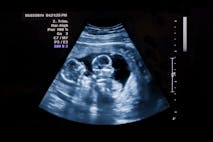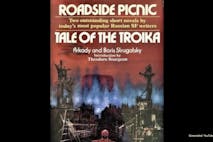
Study: Nearly half of women suffer moderate to high distress after abortion
Michael J. New
·
Pro-abortion critic shocked to find pro-life message in ‘Dune: Part Two’
Hollywood is rife with pro-abortion messaging in both television and film, but “Dune: Part Two” seems to have missed the pro-abortion memo.
The 2022 propaganda feature “Call Jane” lionized the group Jane’s Collective, the defunct organization that led to the creation of Jane’s Revenge, a violent pro-abortion gang that terrorizes life-affirming pregnancy centers and churches. And Amy Schumer’s sitcom “Life & Beth” glamorizes abortion in an episode where her character helps a friend named Jess get through an array of pro-life protestors, who are betrayed as abusive. As Live Action News reported, “Beth is visibly pregnant, and as they arrive at the facility, protesters heap abuse on her, thinking Beth is the one getting an abortion. As Jess thanks Beth for ‘taking the heat’ for her, Beth then apologizes for ‘stealing her thunder.’”
In the mind of the entertainment industry, which donates heavily to pro-abortion organizations, an abortion should be celebrated and not condemned. They use euphemisms to hide the humanity of preborn human beings in the womb, describing the child as a “clump of cells” or something “not alive.” Yet, the Academy Award-winning 2024 feature film “Dune: Part Two” may have subverted that trope, even if not purposefully.

In the opening sequence, an unidentified human fetus is seen floating, surrounded by black. A few minutes later, we discover this is the preborn child of Lady Jessica (Rebecca Ferguson). She informs her reluctant hero son Paul (Timothée Chalamet) that the baby is a girl. After performing a ritual to increase her abilities, Lady Jessica can now telepathically communicate with her daughter.
Paul seems to be skeptical about this, but upon receiving a vision where he sees his sister as a young woman, he realizes his preborn sibling is a person. It is then that the audience hears the voice of the preborn daughter, voiced by Anya Taylor-Joy, who speaks directly to her mother.
READ: They fund public broadcasting on PBS. They also fund the abortion industry.
“Dune” was adapted from Frank Hebert’s iconic science fiction novel “Dune” which also features a voice from the preborn baby girl guiding Lady Jessica and Paul. In later novels, the baby girl is born and becomes a vital part of the “Dune” book series.
The pro-life theme is clearly present. Paul’s preborn sister is shown as a person who must be protected, guarded, and watched over as the events of the movie take place. There is no room for ambiguity, and though the pro-life message might have been accidental, it did not go unnoticed by some critics.
“I knew I was going to have problems with ‘Dune: Part Two’ when it opened with the image of a fetus,” LA Times critic Mary McNamara opined. “If female autonomy was not currently under attack from so many sides, my stomach might not have clenched quite so dramatically as those undeveloped eyes and barely formed limbs marked reentrance into the sprawling tale of Paul (last-of-his-house) Atreides, his pregnant mother and those around them.”
Article continues below
Dear Reader,
In 2026, Live Action is heading straight where the battle is fiercest: college campuses.
We have a bold initiative to establish 100 Live Action campus chapters within the next year, and your partnership will make it a success!
Your support today will help train and equip young leaders, bring Live Action’s educational content into academic environments, host on-campus events and debates, and empower students to challenge the pro-abortion status quo with truth and compassion.
Invest in pro-life grassroots outreach and cultural formation with your TRIPLED year-end gift!
McNamara continued to throw real-world political issues into a story about rival houses fighting for control of a planet in outer space — despite the fact that this science fiction series was written long before Roe v. Wade even existed.
“The overturning of Roe vs. Wade in 2022 had led to an increasing emphasis on ‘fetal rights,’” added McNamara, “… including the recent determination by the Alabama Supreme Court that frozen fertilized eggs are, legally, children.” (In reality, what the Alabama Supreme Court decided is that under that state’s Wrongful Death Statute, human beings in their embryonic stage of life — or “fertilized eggs” as McNamara demeaningly refers to them — created via IVF were to be treated as human beings. Lawmakers in the state quickly rushed to pass a bill giving IVF practitioners civil and criminal immunity, which was signed into law by Governor Kay Ivey.)
If “Dune: Part Two” is any indication, the only “female autonomy” that is under attack is that of baby girls in the womb. While the film shows the humanity of Lady Jessica’s preborn child, the LA Times was quick to downplay that humanity in favor of political messaging. It is a moral mistake that many make when discussing this topic. The baby is indeed a human and not something that should be killed in a grotesque abortion procedure because your stomach might clench at the image of a human fetus.

This discussion of humanity also opens up another avenue when it comes to novels or cinematic experiences. The genre of science fiction is written to highlight life.
Science fiction is all about the unknown. As previously reported by Live Action News, sci-fi can “show the potential and the possibilities that humanity has in making new discoveries. The pro-life message is all about giving preborn children the chance to live — the result being to find their own life adventures, so to speak.”
No one is arguing that the filmmakers behind “Dune: Part Two” are secretly pro-life, but that the story itself shines a light on life in the womb. If movie critics are taking notice to the point of frustration at the LA Times, then perhaps we will see more Hollywood features with life-affirming themes considering the massive success of “Dune: Part Two.”
Live Action News is pro-life news and commentary from a pro-life perspective.
Contact editor@liveaction.org for questions, corrections, or if you are seeking permission to reprint any Live Action News content.
Guest Articles: To submit a guest article to Live Action News, email editor@liveaction.org with an attached Word document of 800-1000 words. Please also attach any photos relevant to your submission if applicable. If your submission is accepted for publication, you will be notified within three weeks. Guest articles are not compensated (see our Open License Agreement). Thank you for your interest in Live Action News!

Michael J. New
·
Human Interest
Melissa Manion
·
Activism
Nancy Flanders
·
Issues
Nancy Flanders
·
Analysis
Cassy Cooke
·
Analysis
Cassy Cooke
·
Pop Culture
Jacob Airey
·
Newsbreak
Jacob Airey
·
Pop Culture
Jacob Airey
·
Media
Jacob Airey
·
Pop Culture
Jacob Airey
·